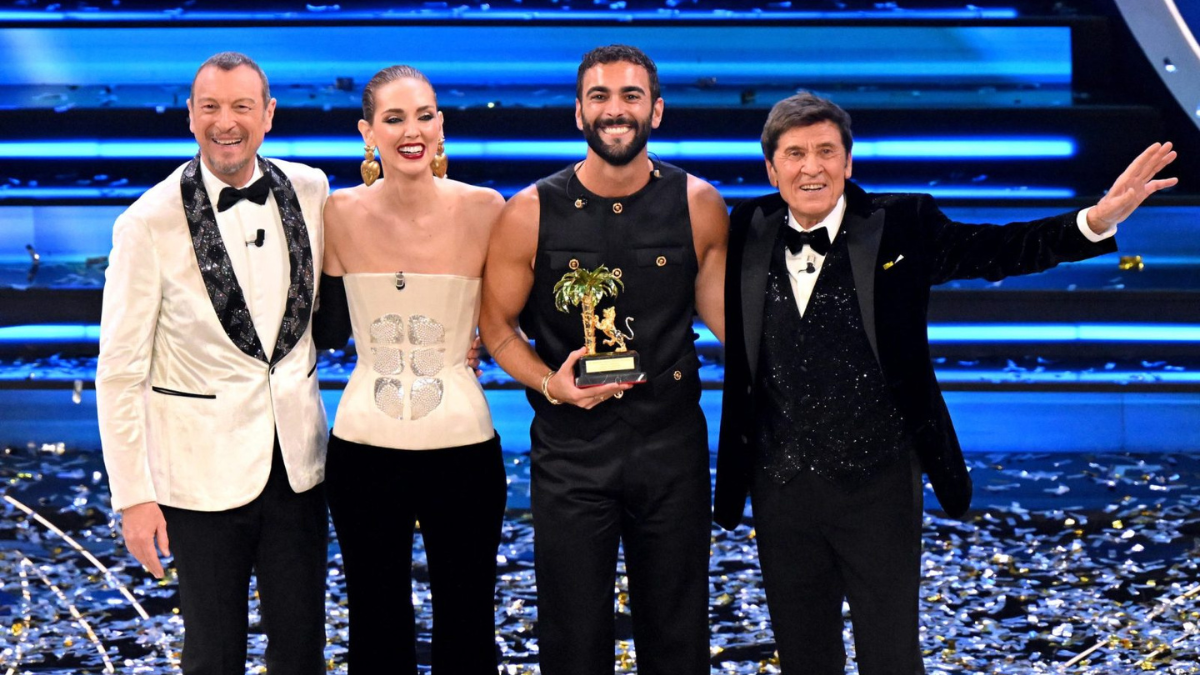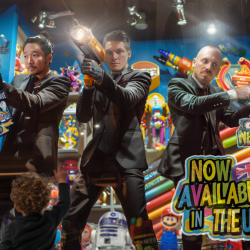The 73rd edition of the Sanremo Festival — the most popular Italian song contest, the longest-running annual TV music competition in the world on a national level, and the inspiration for the annual Eurovision Song Contest — took place in the last few days in the Ligurian town and elected Marco Mengoni as its latest winner. Actually, the most amazing thing is that in 2023 the festival reached more than 12 million spectators, with a 66% share, the highest since 1995.
More than 50 brands invested in the event and 50 million euros were spent on advertising. The festival is now an event that appears on multiple channels, with the ability to harness the potential of multiple media — from digital to traditional — catching trends of the moment and considerably expanding its reach in terms of targeting specific audiences.
The official social media profiles of the festival were very active and the tone of voice was playful, youthful and ironic. A lot of successful real-time content was created — photographs, videos, memes. New traditions have been created in the last few years: the @fantasanremo is a significant and fascinating example of the hype the event generates: born in a random bar in Porto Sant’Elpidio (Marche) it quickly became a nationally popular online phenomenon, Fantasanremo is a tradition that is new, but loved as if it were old.
To explain: FantaSanremo is an adaptation of Fantasy Football in the context of the Italian music festival. FantaCalcio (or Fantasy Football) is a game in which participants assemble an imaginary team of real football players and score points based on those players’ statistical performance, or their contribution to real-life games.
In FantaSanremo, users create a team using the available credits, choose five artists, appoint a captain and, based on the results of the contest, receive points to draw up a general ranking. Its success, after debuting in 2020, exploded last year and has become part of the Festival’s DNA.
All of these factors, along with the 28.8m followers that co-host digital entrepreneur Chiara Ferragni brings, generates incredible activity on the hashtag #Sanremo2023, which was regularly used by brands.
So why is Sanremo the Italian Super Bowl?
Well, the festival is not only the ‘holy week’ of Italian music, but also a social event that, in Italy, generates vast sums of money like no other. This year’s event was a record: 50 million euros in advertising, as much as Ariston (the venue of the festival) is worth. This was up 28% on the previous year, and exceeded the expectations of Artistic Director Amadeus (below right), who ran the event during the height of the pandemic.
This year the festival took place not only within the walls of the Ariston, but also in Piazza Colombo, where the Suzuki stage hosted concerts featuring some of Italy’s most popular artists. While the Costa Crociere stage had performances on a cruise ship in the middle of a lagoon.
Advertising agency Rai Pubblicità was fully booked for months in the lead up to the festival. Whether it’s Baci Perugina with the commercial signed by Dolce & Gabbana, or Swarovski, Netflix, Dior, Airbnb, Amazon Prime, and others, more than fifty brands invested in the five evenings of the festival. Rai Pubblicità’s main offer were 15-second spots so more investors could participate.
And much like the US Super Bowl, references to the event were frequently seen in commercials. New additions for 2023 to the prime-time Sanremese commercial block was Netflix Italia‘s Coming Soon spot: the protagonist looked for her colleagues, only to find them glued to the TV watching the festival, much like the rest of Italy.
Spotify took the slot for the second commercial break, with a festival playlist (see below). The fourth break went to Paramount+, for a new campaign produced by Utopia, which brought the historic Signorine Buonasera spokespeople back to the small screen to share their program.
Featured image: Sanremo Festival last night / Primaonline



























